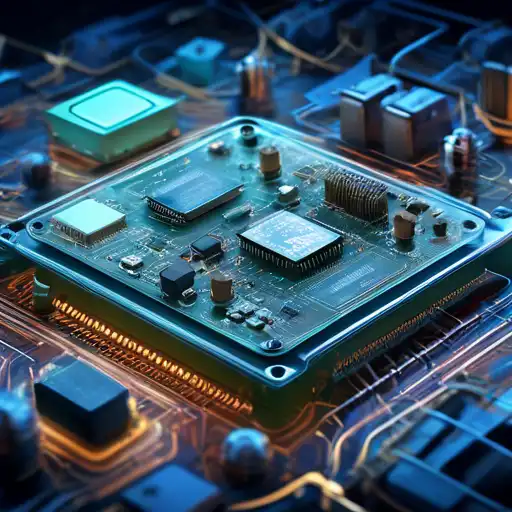The Hidden Heroes: How Embedded Systems Power Our Smart Devices
In the digital age, smart devices have become an integral part of our daily lives. From smartphones to smart refrigerators, these devices make our lives easier, more efficient, and more connected. But have you ever wondered what powers these smart devices? The answer lies in embedded systems, the unsung heroes behind the scenes.
What Are Embedded Systems?
Embedded systems are specialized computing systems that perform dedicated functions within larger mechanical or electrical systems. Unlike general-purpose computers, which are designed to handle a wide range of tasks, embedded systems are optimized for specific tasks, making them more efficient and reliable.
The Role of Embedded Systems in Smart Devices
Embedded systems are the brains behind smart devices. They control everything from the user interface to the device's core functionalities. For example, in a smart thermostat, the embedded system processes temperature data, communicates with other devices, and adjusts the heating or cooling system accordingly.
Key Features of Embedded Systems
- Real-time operation: Many embedded systems are designed to operate in real-time, ensuring timely responses to inputs.
- Low power consumption: Embedded systems are optimized for energy efficiency, making them ideal for battery-powered devices.
- Compact size: Their small form factor allows them to be integrated into a wide range of devices.
- High reliability: Embedded systems are built to perform their tasks consistently over long periods.
Examples of Embedded Systems in Everyday Life
Embedded systems are everywhere. Here are a few examples:
- Smartphones: The operating system, touchscreen interface, and camera functionalities are all controlled by embedded systems.
- Automobiles: Modern cars rely on embedded systems for everything from engine control to infotainment systems.
- Home appliances: Smart refrigerators, washing machines, and microwaves use embedded systems to offer advanced features.
The Future of Embedded Systems
As technology continues to evolve, the role of embedded systems will only grow. With the rise of the Internet of Things (IoT), embedded systems will become even more critical in connecting and controlling smart devices. Innovations in artificial intelligence and machine learning will further enhance their capabilities, making our devices smarter and more intuitive.
Conclusion
Embedded systems are the backbone of modern smart devices, enabling them to perform complex tasks efficiently and reliably. As we move towards a more connected world, the importance of embedded systems will continue to rise, driving innovation and improving our quality of life.
For more insights into the world of technology, check out our articles on IoT and Tech Innovation.
